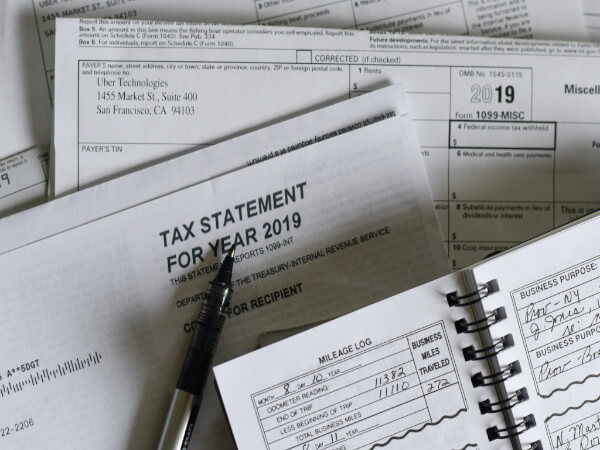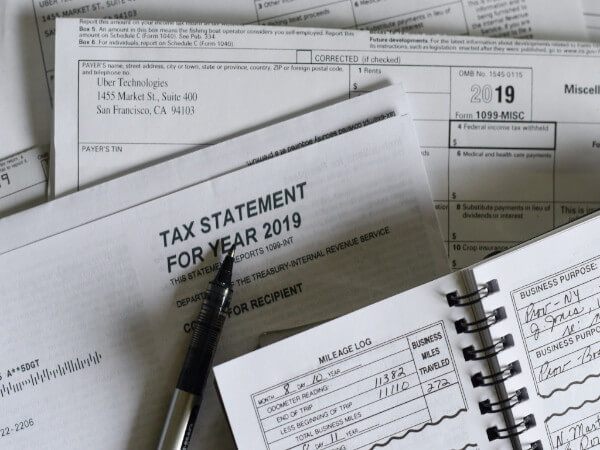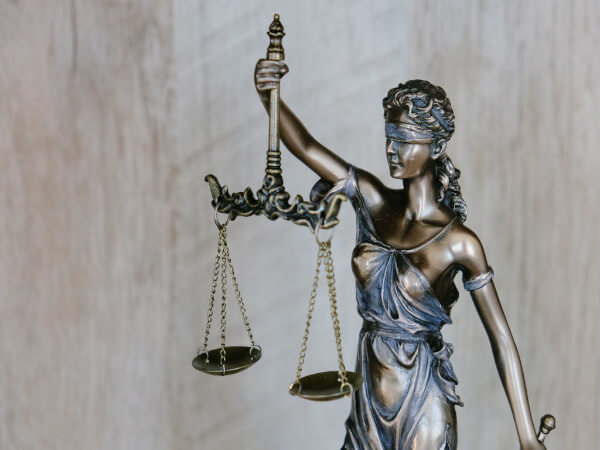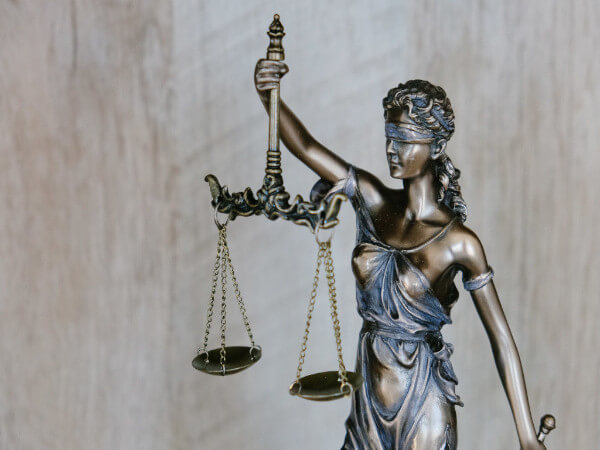Category: Business Tips
SC on accepting and discarding the testimony of witnesses
The Supreme Court made an observation that merely on the ground that Test Identification Parade, i.e. TIP, had not been conducted, the testimony of a witness who identified the accused in the court could not be discarded. In the instant case, the prosecution witness confessed that he had been unable to identify any individual whom he had seen 11 years ago, however, he asserted that he would be able to identify the accused even though he has seen him for the first time 11 years ago, on the day of incident. The division bench stated that usually there is presence of sufficient corroborative evidence to corroborate the testimony of witnesses. The bench allowed the appeal filed by the accused who had been convicted under Section 55(a) of Kerala Akbari Act, and disbelieved the witness who had identified the accused in the court on the ground that he had seen him for the first time in 11 years. The accused contended that since the TIP had not been conducted, the prosecution’s version could not be relied upon. The bench, however, clarified that the TIP is a part of investigation and does not form part of substantive evidence. The post SC on accepting and discarding the testimony of witnesses appeared first on LexForti . Randy Reidwww.itcse.org
Read MoreKeeping Clients While Managing Extraordinary Change
Keeping clients when your firm is changing is a tricky business and involves a lot of reassurance — not just for them, but for you. I vividly remember interviewing a client about his relationship with his law firm, my client. While he was very satisfied with the firm’s work and the people doing it, he moved quickly on to his top concern. Unbeknown to me but known by him, the senior partner who served as the primary point of contact was dying of cancer. The client said to me, “I feel terrible about it … but what is going to happen to me?” Even when there are great lawyer-client relationships, clients are concerned about their own interests. They notice when senior lawyers start spending more time at their condos down south, or when younger lawyers come and go on their work and invoices. The Challenges to Keeping Clients Any number of events can create a potential challenge to retaining a client, including: The departure of a lawyerA change in company ownershipThe death of a lawyerA change in company leadership In general, law firms do a poor job of establishing the kind of institutional relationship that binds a client to the firm. In some cases, it’s because of ego or compensation; in some cases, the nature of the lawyer-client relationship can’t be replicated. And in some cases, it’s a lack of confidence in colleagues. While you can’t guarantee that clients will connect with new firm contacts (or vice versa), you can do many things to make planned or unplanned transitions go more smoothly. Keeping Clients: If You Need to Triage In the event of an unexpected change, here are some smart steps to take: Have the managing partner or client relationship partner contact the client immediately to establish that the client
Read MoreExplained: Validity of Stamp Paper [6 Months or 3 Years?]
>In this Article, the author walks reader through the concept of Stamp Paper and ponders upon the validity of a Stamp Paper! What is a Stamp Paper? An illustrative representation of a Non Judicial Stamp Paper. It is a piece of paper which bears a pre-printed revenue stamp. Any transaction gets legal validity, once being executed on a stamp paper of proper value. It brings legal authenticity to any valid agreement. What documents need to be executed on the Stamp Paper? Be it an agreement or a documented business transaction; if legal sanctity need to be added, one should execute it on the legal stamp paper. Documents like Lease Agreement, Sale deed, Loan Agreement, Affidavits, Memorandum of Association or Article of Association; need to be executed on the stamp paper. However, all documents are not to be executed post payment of Stamp Duty. A few documents are exempt from it. One can have a look into the Schedule I of the Stamp Duty Act, to understand the same. SCHDULE-I-Indian-Stamp-Act Types of Stamp Papers: Judicial Stamp PapersNon Judicial Stamp Papers Judicial Stamp Papers: Judicial stamp papers are used for legal purposes. If any legal document need to be submitted for the purpose of legal procedure; then, applicant execute the same in Judicial Stamp Papers. These are often called as, Court Fee Stamp Papers. These Stamp Papers are used to avoid Cash Transactions in the Court. A case might not get admitted, if court fees is not paid properly. Non Judicial Stamp Papers: Whenever someone enters into a transaction and intends it to give legal sanctity; then such transaction are documented in the stamp papers of proper value. State Government charges tax for any of such transaction. Hence, State Governments decide the rates of stamp duty to be paid. Therefore, every states
Read MoreCivil dispute when given color criminal offence acts as a weapon of harassment- SC
The Supreme Court, while quashing criminal proceedings initiated against a property purchaser, made an observation that frivolous allegations tend to hamper the mechanisms introduced for delivering justice to the victims. The background facts of this case include filing of an FIR against the power of attorney of the complainant and purchaser of the property. The bench examined the FIR and observed that the criminal proceedings had been adopted as a weapon to harass the purchaser. Furthermore, it had been observed that the FIR did not disclose any criminal offence against the party and the relevant part of the charge sheet appeared to be vague. The bench also addressed the powers extended to the High Court and stated that latter ought to examine whether a particular complaint discloses criminal offence; nature of allegation; or essential ingredients of the offence have been present or not. Moreover, it reiterated that powers under Section 482 of Code of Criminal Procedure, 1973 have been designed with an objective to achieve the purpose that no criminal proceedings are initiated which aim at harassing the individuals. The apex court bench allowed the appeal and clarified that there stands no doubt that even civil transactions might have criminal texture, however, it’s the duty of High Court to see whether a dispute of civil nature has been given color of criminal offence or not. The bench quashed the criminal proceedings not just because a civil remedy is available but because neither the FIR nor the charge sheet could make out a criminal case against the appellant. The post Civil dispute when given color criminal offence acts as a weapon of harassment- SC appeared first on LexForti Legal News & Journal. Did you miss our previous article… https://www.itcse.org/?p=217 Randy Reidwww.itcse.org
Read More5 Tips for Making the Transition to Virtual Law Firm Status
Virtual law firm status has worked out so well for some firms, they’re making the switch permanent. Should you? Amid the coronavirus pandemic, office workers everywhere have shown that to be productive, all you need is a laptop, a reliable internet connection and a desk. This begs the question: Do people really need to be inside an office all day? While firms are announcing their back-to-the-office plans, you may be wondering if it is possible to move your law office to a virtual setting permanently. And if so, what is the best way to go about it? Virtual Firms Aren’t Always 100% Remote While the term “virtual” law firm may sound like everyone works 100% remotely, it’s not about where you are working. It’s about how you work together and how you deliver your legal services. Your location could be a hybrid of working from home or a coffee shop, and occasionally working from a rented or shared office space. The latter can be especially useful for meeting with clients when you would rather not meet online, or you could rent an office exclusively for ad hoc meetings. Note: While you could meet clients at a public location, I do not recommend that: You would not have a reasonable expectation of privacy during your discussion. Related: “How to Ethically Practice in Place” by Mark C. Palmer Benefits of a Virtual Law Firm A virtual setting can have many benefits. Lower overhead. Whether you have a smaller office space or bypass having one completely, you will not have to spend as much on renting a physical location and all the costs associated with it: utilities, furniture, parking. More flexibility. Bosses love to be bosses in part because they do not have to let anyone know if they are coming in late,
Read MoreJ&K&L HC quashed defamation complaint filed against media-persons
The Jammu & Kashmir and Ladakh High Court, while hearing a defamation complaint filed against Editor-in-Chief of Republic TV Arnab Goswami and journalist Aditya Raj Kaul, made an observation that reporting of allegations levied against official duties of public figures does not amount to defamation. The complaint had been filed by Peoples Democratic Party’s (PDP) senior leader, Naeem Akhtar, in the year 2018 wherein it had been alleged that the Republic TV had broadcasted a news segment revolving around Khalid Jahangir’s letter which did not include complainant’s name yet the Editor-in-Chief had intentionally and deliberately mentioned his name while reporting about the same. The letter included allegations of corruption and favoritism, and the complainant alleged that the anchors and journalist of Republic TV repeatedly mentioned his name in connection to the allegations raised in the letter. The bench denied the allegations and stressed upon the duty of press to bring before the viewers’ news of day-to-day events relating to those public figures whose actions affect the public at large. Furthermore, the bench observed that in cases where journalist publishes true report in respect of a public figure and their public functions, which already remain in public domain, it could not be said to be an intentional act to harm the reputation of such public figure. The bench stated that publication of charges which concern public duties of a public figure and have already been recorded in a letter which is also in public domain, would amount to an unreasonable restriction on the freedom of press guaranteed under Article 19(1)(a) of the Constitution of India. It also highlighted that mens rea, a condition precedent to constitute the offence of defamation, had been absent in order to prove the intention or knowledge on part of accused to harm the reputation of complainant.
Read MoreMadras HC directs govt to take up the responsibility of vaccinating mentally ill persons
The Madras High Court, while hearing a Public Interest Litigation (PIL) filed by an NGO, sought for details from government about the vaccination drive being organized for the homeless mentally ill people and also directed the State government to renovate, restore and construct government care camps for such wandering mentally ill persons. The NGO, through the PIL, sought for directions to State Government for the purpose of identifying and vaccinating homeless mentally ill persons. In response to the PIL, the State Government had submitted a status report wherein it mentioned the number of mentally ill persons who had been rescued, identified and rehabilitated at care homes of the government. The government further emphasized on the possibility of such persons being vaccinated. The NGO gave the example of a government care camp which had been constructed at Melpakkam, in accordance to the provisions of the Tamil Nadu Beggary Prevention Act XIII of 1945, with an objective to eliminate beggary and rehabilitate the beggars. However, the NGO submitted that the care home has now been dilapidated. With respect to this finding, the bench directed the State Government to take every possible step to renovate and restore the already constructed homes and invest in new construction projects to rehabilitate the wandering mentally ill persons. The bench further directed the State government to submit a report with respect to total number of mentally persons who’ve not been cared for in the state and ones who’ve been vaccinated. The post Madras HC directs govt to take up the responsibility of vaccinating mentally ill persons appeared first on LexForti Legal News & Journal. Did you miss our previous article… https://www.itcse.org/?p=184 Randy Reidwww.itcse.org
Read MoreThought Leadership Marketing: Write for Someone, Not Everyone
With so much change and so many unanswered questions, there’s never been a better time to stand out through your thought leadership. Writing and publishing content often feels like tossing a needle into the internet haystack. That’s challenging enough. But if all you’re doing is recycling the same old ideas, and trying to make them relevant to the biggest audience possible, then it’s not even a needle. It’s just more hay. The way to stand out is to create content that is more client-focused — that is, content created for a very specific, often small, audience. You don’t need to reach everyone, just the cohort of individuals and businesses that requires the type of contextualized insight only you can offer. By showing up over and over for your audience, you’ll generate awareness, and people will come to trust you. Awareness and trust are the building blocks of business development. From the client’s perspective, deciding who the right lawyer is for the job will become obvious. After all, why would a client choose an unknown commodity when there’s someone consistently showing up in their inbox and social feeds with solutions to the very problems they face? Lawyer Thought Leadership: Narrow Your Focus When you set out to become a thought leader, you need to approach it with the mindset that you must write for someone, not everyone. You must narrow your focus. Businesses and individuals succeed when they focus on less, not more. Across all categories of service offerings, there are continuums of premium brands and commodity ones. Those in the premium category narrow their positioning — the articulation of what they do and for whom they do it — to the point that there are few, if any, available alternatives to what they offer. They solve discrete problems for distinct
Read MoreRight of underprivileged children to receive online education covered u/Art 21A- SC
The Apex Court, with respect to the Right to Education, made an observation that the underprivileged students’ need of receiving online education ought to be protected in order to ensure that the “Right to Education”, which is protected under Article 21A, soon becomes a reality. The instant petition had been filed by Action Committee Unaided Recognized Private Schools against the judgment passed by Delhi High Court, wherein it directed the school management to provide free gadget and internet connection to students belonging to Economically Weaker Sections and Disadvantaged Groups, and Delhi Government to reimburse the costs to private schools. The bench issued a notice and directed the Delhi Government to come up with plans and ideas to achieve the ultimate objective of Right to Education Act. It further added that even the Government of India should take steps and engage State Governments as well to carry out its concurrent responsibility of providing funds under the Act. The bench in its order noted that the students belonging to EWSs and DGs should have the necessary wherewithal to ensure that they’re at the same platform like other schools across the country who had been able to continue their education through online mode. Earlier, the Delhi HC had directed the Delhi Government to reimburse the private schools, however, the latter challenged the order before Supreme Court and the Delhi HC’s order had been stayed. The instant Special Leave Petition (SLP) has thus been preferred by the applicant. It also had been noted by the bench the aforesaid issue needs to be resolved as early as possible as there would be reopening of schools. Until then, computer-based learning would prevail and the accessibility of the same to the students belonging to EWSs and DGs of utmost importance. Lastly, the bench clarified that the instant
Read MoreNeither NEET-UG 2021 exam be cancelled nor fresh exam be conducted- SC
The Apex Court, while dismissing a petition which sought for cancellation of NEET-UG 2021 exam and fresh exams for NEET-UG, made an observation that due to the reported instances of impersonation and paper leakage, lakhs of students cannot be made to suffer. The NEET-UG 2021 had been conducted on September 12, 2021 and widespread allegations had been raised for adoption of malpractices and paper leakage. The counsel on behalf of petitioner contended that NEET-UG 2021 had been irreversibly vitiated due to the involvement of unfair means, malpractices through gadgets, devices, and facilitation through illegal and unfair means. Moreover, the counsel submitted that already five FIRs had been registered across the country over the allegations of paper leakage, malpractices and impersonation in NEET-UG exam, including the CBI. The counsel had also sought for a report from National Testing Agency (NTA) as the NEET paper had been leaked as soon as the exam had begun and the solutions to them had been circulated on Whatsapp. The bench, from the outset, expressed its disinclination towards the petition. It further questioned the petitioner for filing such a writ petition that could be detriment to the lakhs of student who’ve appeared for the NEET-UG exam. The bench agreed that allegations had been raised but merely on account of 5 FIRs, it did not agree to affect the exam that had been conducted nationally and appeared by more than 7.5 lakh students. The bench straightaway dismissed the writ petition and criticized the petitioner for being “adventurous.” Initially, the bench proposed to dismiss the petition with Rs. 5 lakhs costs, however, on the request of counsel, omitted the costs. The post Neither NEET-UG 2021 exam be cancelled nor fresh exam be conducted- SC appeared first on LexForti Legal News & Journal. Did you miss our previous article…
Read More


![Explained: Validity of Stamp Paper [6 Months or 3 Years?]](https://www.itcse.org/wp-content/uploads/2021/10/Legal-Advising-4-12.jpg)











